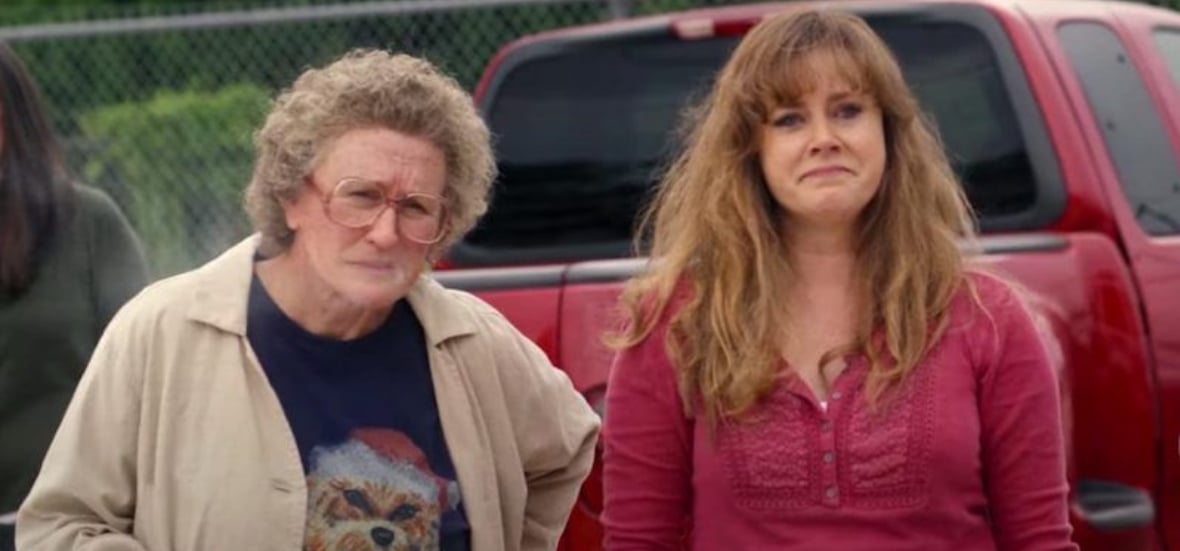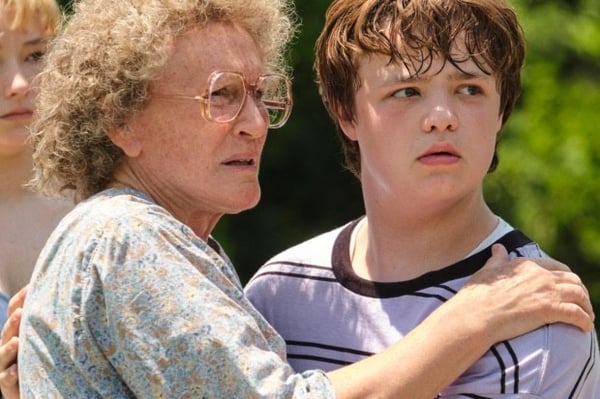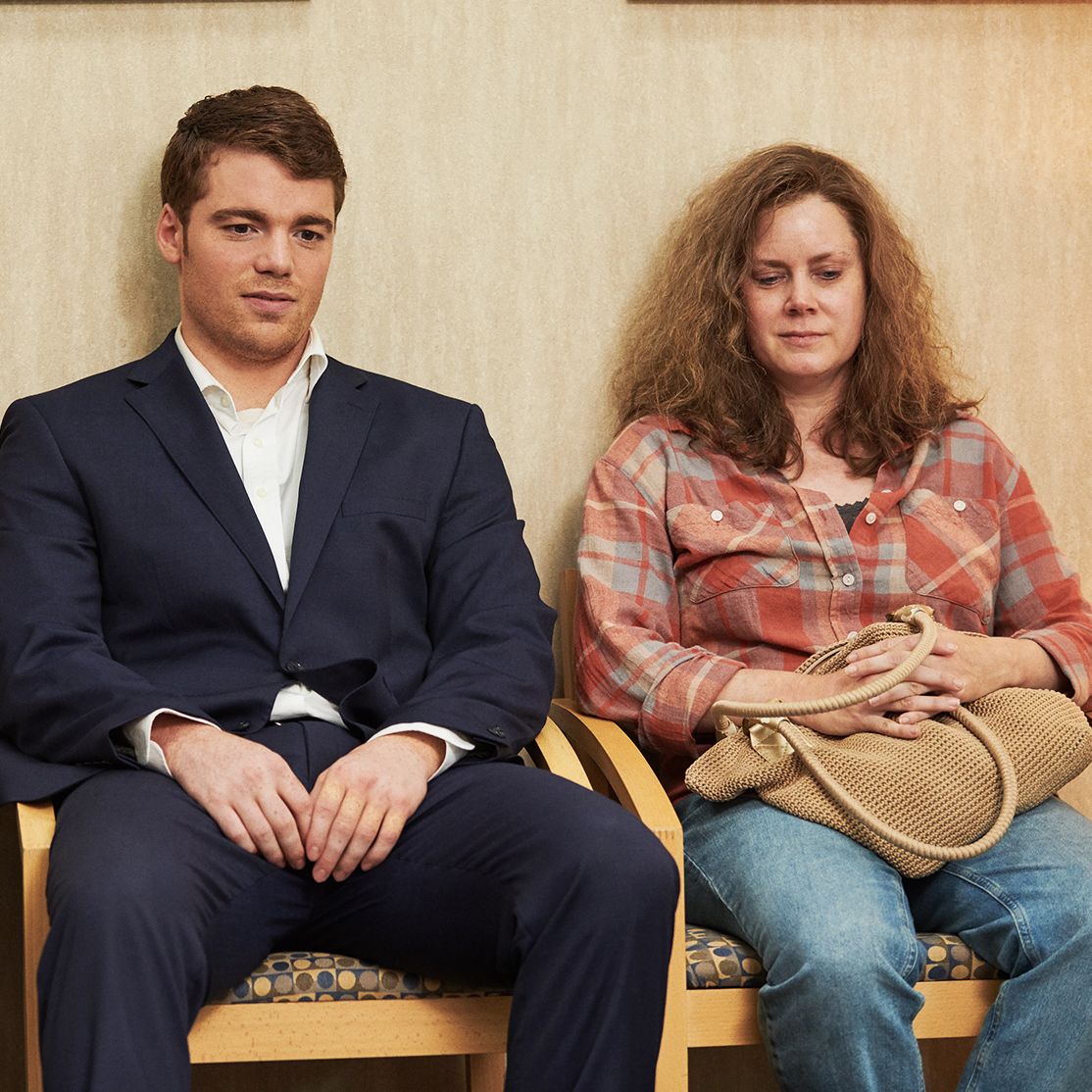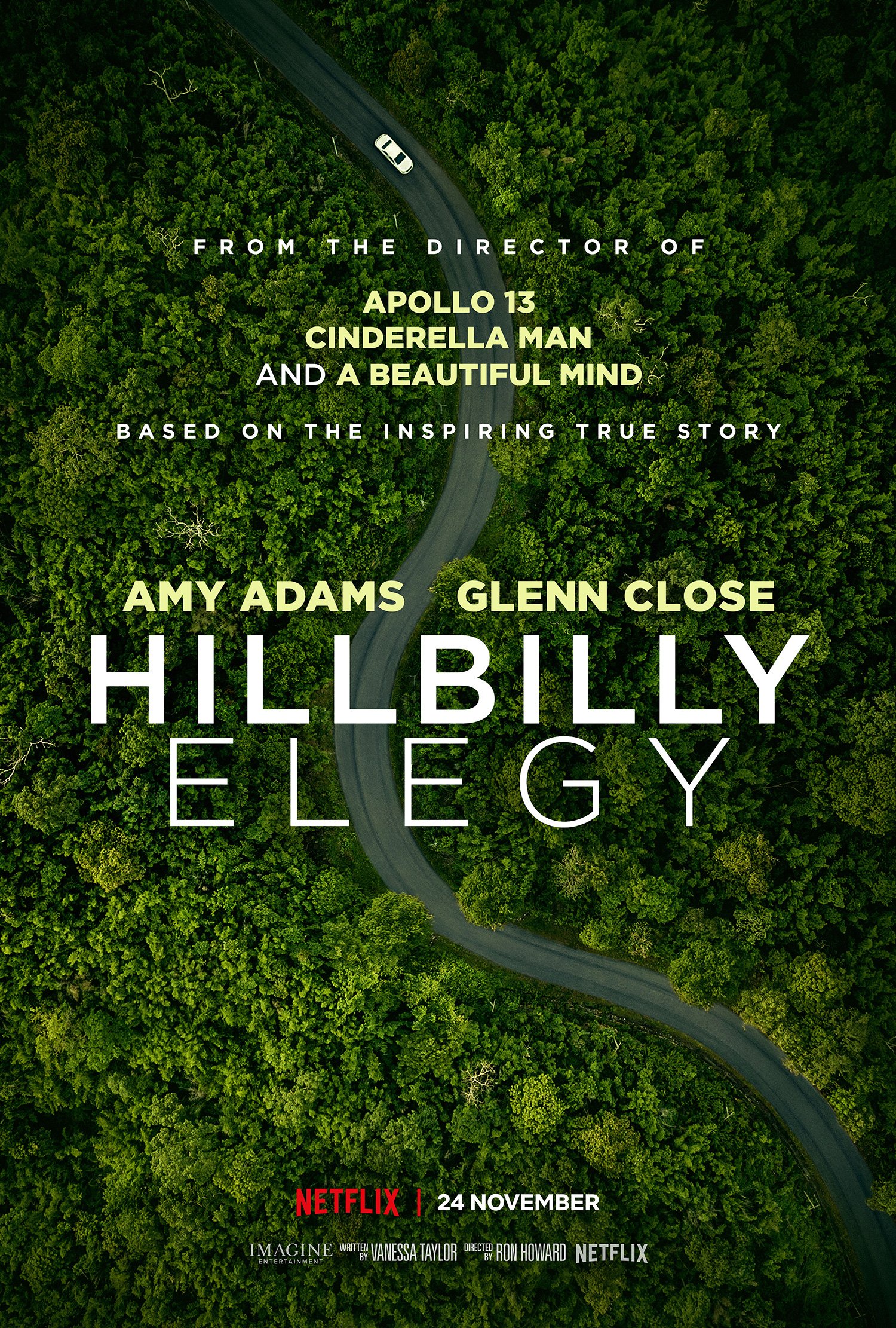
Sr. Nancy Usselmann, FSP, reviews Hillbilly Elegy, a tale of family struggles and hopeful healings.
Each of us has a history. We are a combination of the time, place and family to which we belong that shapes us as human beings and affects our outlook and attitudes of life. We are formed by our surroundings, for good or for ill. Yet, we are not only the summation of our past, but can become human beings that are lifted beyond our familial scars and choose every day to be who we want to become.
Such is the story of J.D. Vance, whose memoir Hillbilly Elegy became a New York Times bestseller, and whose childhood in the economically struggling region of Middletown, Ohio becomes the setting for the film directed by Ron Howard and written by Vanessa Taylor. Amy Adams, Glenn Close, and Gabriel Basso star in this telling tale of family struggles and hopeful healings.

Through voiceover, J.D. tells his story as a young boy enjoying summer vacation in Jackson, Kentucky in 1997, the place in Appalachia where his people are from, but lives in Ohio because his grandma moved there when pregnant at 13 years old. The same age J.D., played by Owen Asztalos, is a soft spoken and reflective young man who probes his own family history and discovers things that surprise and change him. He questions what dreams his grandparents were chasing when they left Kentucky for Ohio and feels that something is missing in their current existence, which he concludes, “Maybe hope.”
In his twenties, J.D. (Gabriel Basso) works hard to make a living to get himself through college and so make it to Yale Law School while working three jobs. While there he must score an interview with a prominent law firm in order to obtain a paid internship to cover the rest of his college expenses. While at dinner with lawyer scouts he receives a phone call from home that pulls him back to Ohio in order to face his past and the family’s collective wounds.
In a clever series of flashbacks, we see his struggles growing up with his mother Bev (Amy Adams) who becomes addicted to pain killers ever since she worked as a nurse in the local hospital. She also floats from one relationship to another leaving J.D. with his Mamaw (Glenn Close) and Grandpa (Bo Hopkins) who became his guardians because of his mother’s abusive behaviors. Mamaw becomes his refuge, though, she herself carries scars of her past with her alcoholic husband and economically depressed lifestyle. Yet, she teaches J.D. that no matter what happens, family is the only thing that really matters. Bev does love her children but just cannot seem to overcome her own weaknesses, thereby perpetuating the emotional wounds she experienced when she was a child seeing her parents’ destructive behaviors.

J.D.’s sister Lindsay (Haley Bennett), stayed behind in Middletown and is married with three children of her own, tries to take care of their mother who falls into addiction. She calls J.D. to return home from Yale to help with the situation. He returns to find a way to get the help Bev needs but discovers limited options when one is poor like his mother. Even in the midst of her aggressiveness and need for the next drug fix, J.D. remains with his mother putting her up in a motel room for the night. He tells her, “I’ll do everything I can … don’t give up, Mom.” His compassionate care for her despite the pains he suffered at her expense challenges us all to reflect on the meaning of family.
Too often our societal individualistic perspective says to just walk away and pursue your own dreams no matter the cost. Yet, here J.D. does pursue his dreams despite the poverty of his past, while still remembering where he comes from and caring for family in time of need. We do not choose our family of origin and sometimes we must face our history in order to live free from the scars of the past. Indeed, we can choose every day who we become regardless of where we came from, but our family is still our family. And, God knows, they need our love, compassion and forgiveness so that all can heal from the familial wounds carried by generations.
This film is a lovely reflection of this reality. It takes courage to face our past together so as to grow in grace and freedom. If we do, we bring more light, hope, and healing to a world desperate for wholeness and mercy. This is what it means to be Christian, a follower of Christ, who continually offers us forgiveness and redemption despite our sinfulness. None of us deserve it, but in this we put our hope.
Because of rough scenes of violence, substance abuse, and language, Hillbilly Elegy is rated R. See it on Netflix beginning November 24, 2020.

Copyright 2020 Sr. Nancy Usselmann, FSP
Originally published on bemediamindful.org.
Photos: Lacey Terrell/NETFLIX ©2020. All rights reserved. Used with permission.
About the Author

Sister Nancy Usselmann, fsp
Sr. Nancy Usselmann, FSP is a Daughter of St Paul and the Director of the Pauline Center for Media Studies in Los Angeles, CA. She is a Media Literacy Education Specialist, theologian, international speaker, film reviewer, and blogger for BeMediaMindful.org. Her book A Sacred Look: Becoming Cultural Mystics is a theology of popular culture published by Wipf & Stock Publishing.


.png?width=1806&height=731&name=CatholicMom_hcfm_logo1_pos_871c_2728c%20(002).png)
Comments